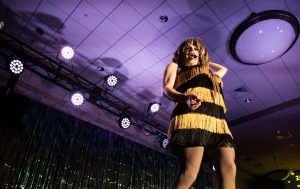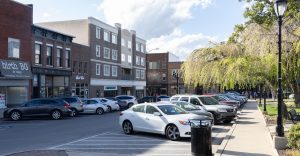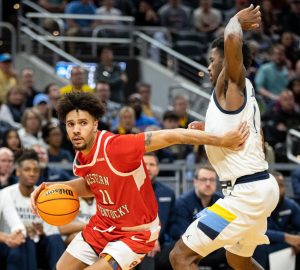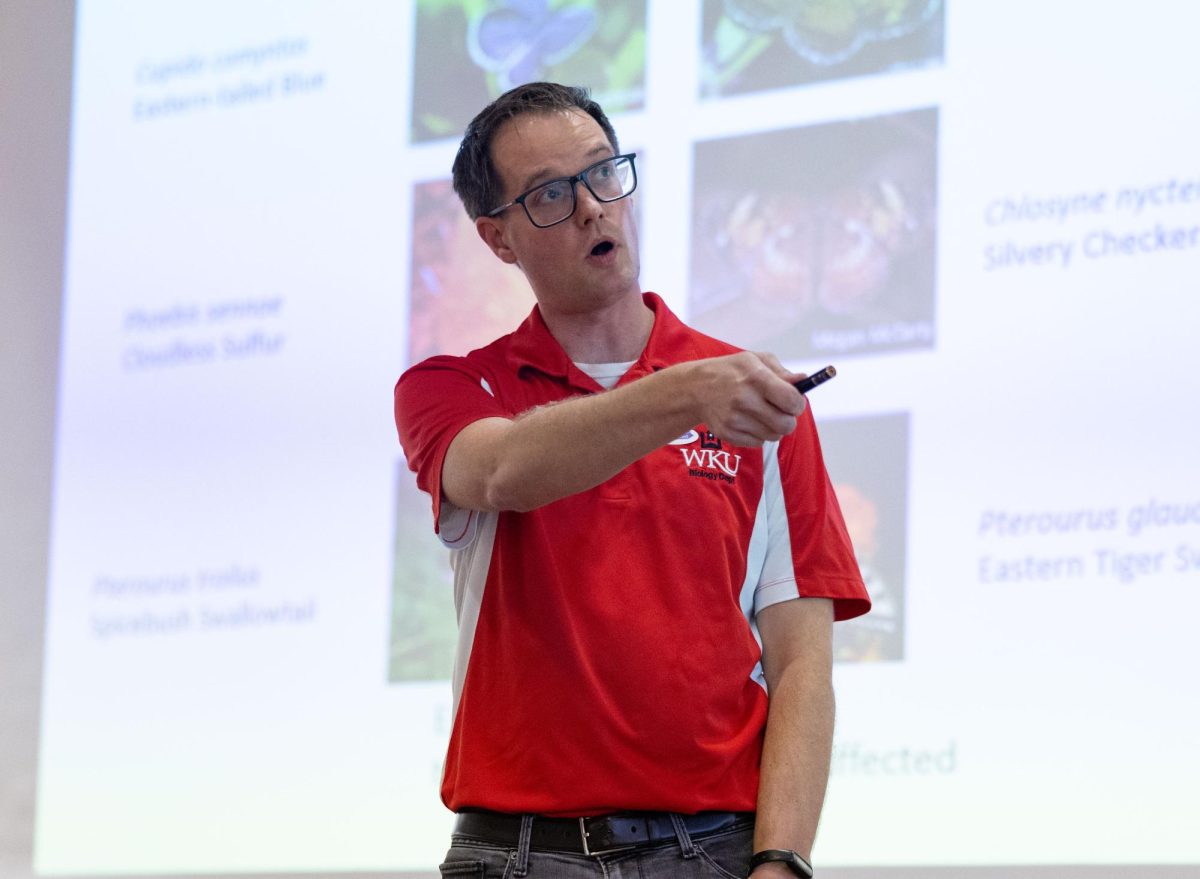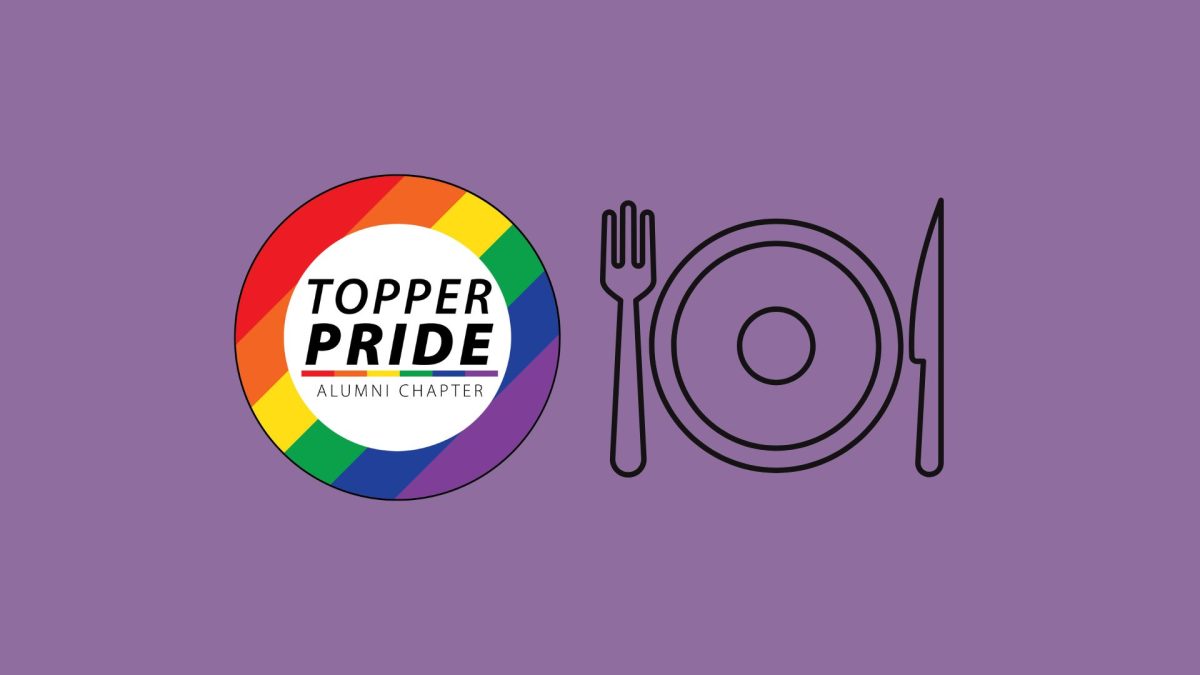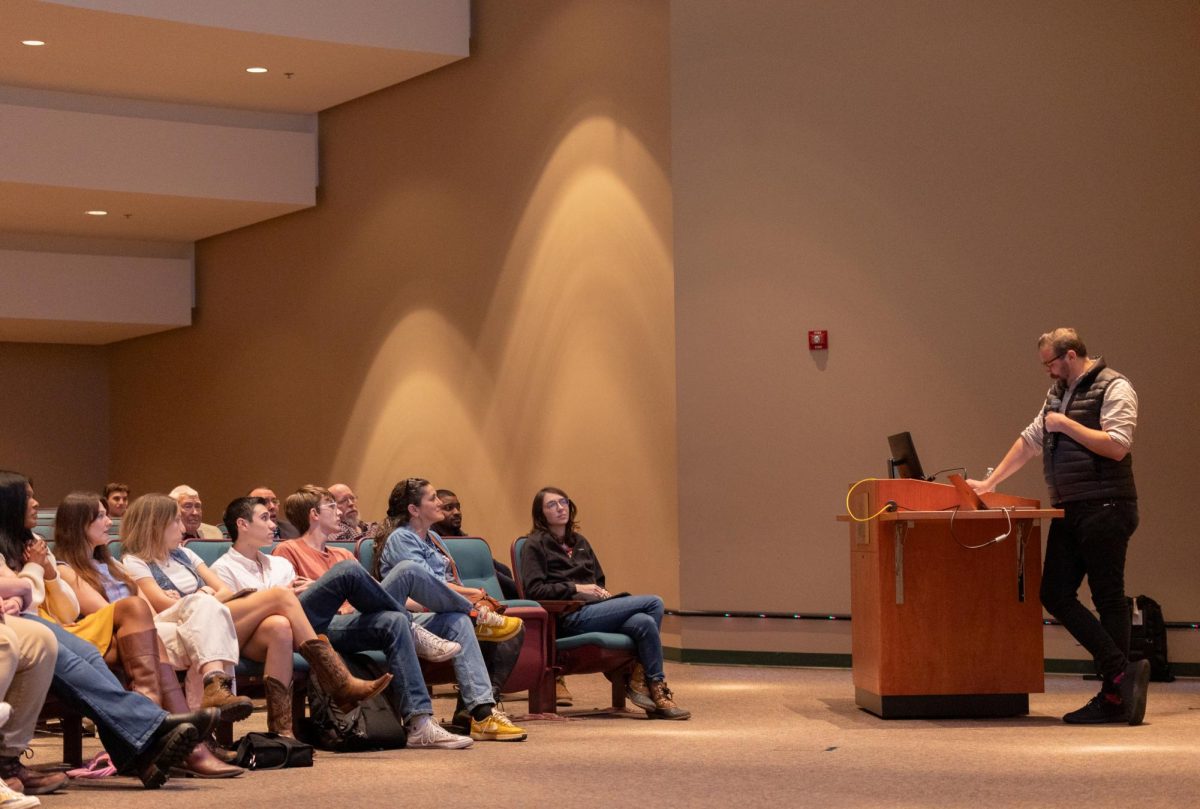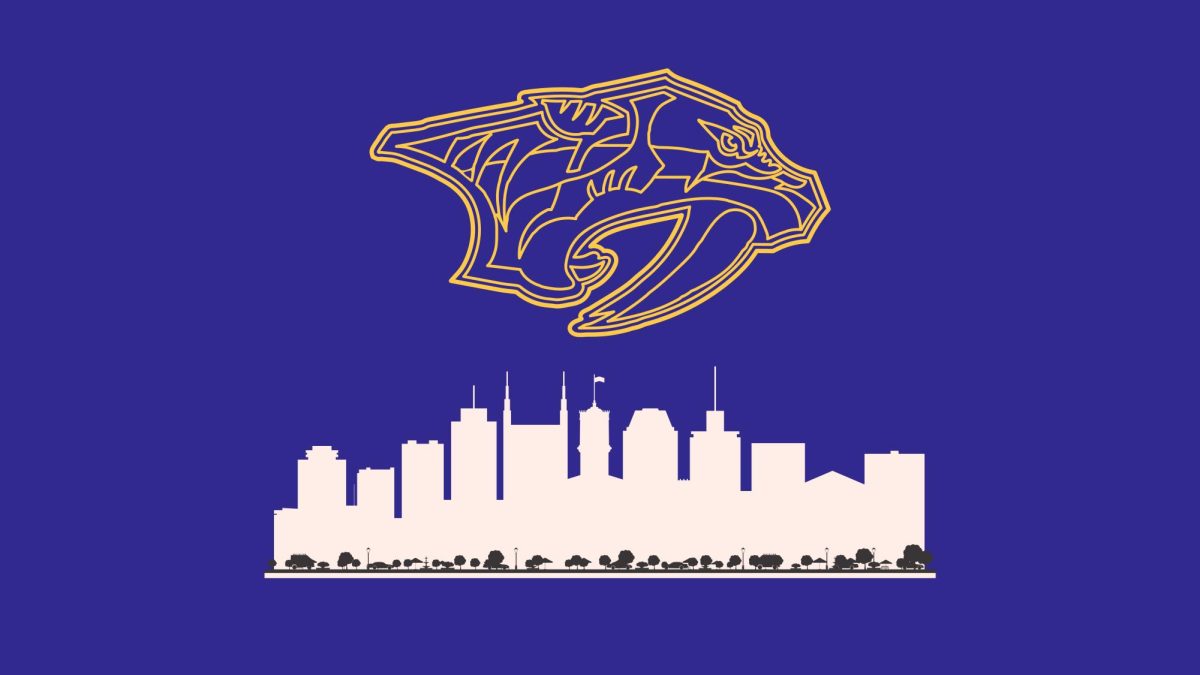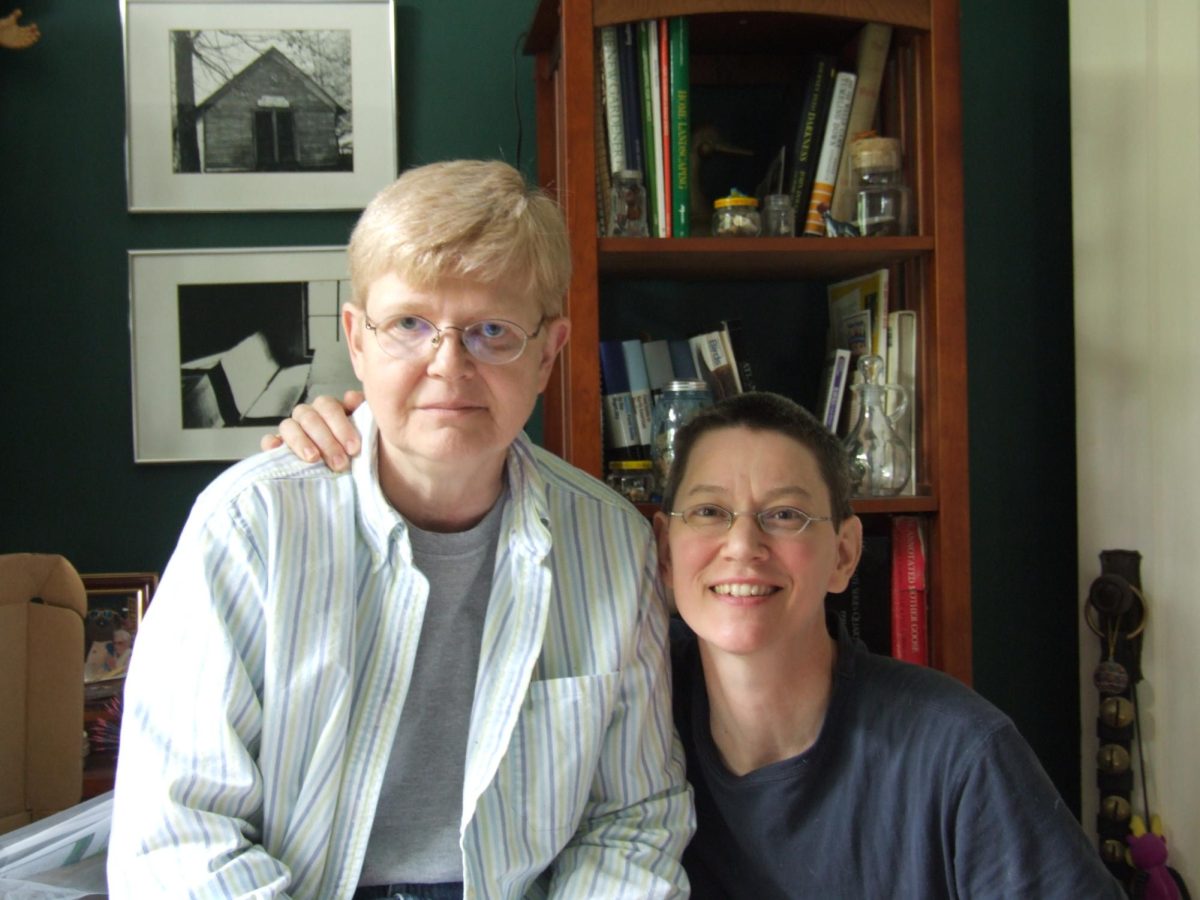The Mahurin Honors College Alumni Ambassadors hosted WKU biology professor Joseph Marquardt as the first speaker of this year’s Young Alumni Speaker Series.
Marquardt is a prior WKU student who was part of the Mahurin Honors College and credits much of his accomplishments to the opportunities the MHC provided him. During his undergraduate career from 2006 to 2010 as a recombinant gene technology, now molecular biotech, major, the MHC was a program rather than an actual college due to the lack of students willing to participate.
Despite this, Marquardt credited it for being what curated many of his friendships, and what even helped him meet his wife. Coming to WKU from Memphis, Tennessee, he started out knowing no one. The MHC helped him create a core group of friends.
“We did all sorts of things together all around, we went on spring break trips together,” Marquardt said. “So, a social, sarcastic someone who didn’t have any campus connections, didn’t know the area, didn’t have friends here and it [Honors College] helped me find a place of belonging.”
Along with the friendships built, Marquardt credited WKU as a whole for driving critical thinking. In comparison to larger college campuses where there are larger lecture halls and a weaker faculty-to-student ratio, WKU drives the connection between students and staff and allows for more focused projects to be established.
“You guys have a lot of maybe extra projects in your honors section,” Marquardt said. “I distinctly remember one, it was in one of my classes where I had to look up the structure of a protein and how it related to unknown protein functions. And I would have never been able to do that at a big, large campus because that sort of project is not something that a faculty can do.”
Marquardt began his undergraduate research in the fall of his second year on campus. His research revolved around the population genetics of butterflies. While he gained knowledge of butterflies and their inner workings, that was not the goal of his research.
“It didn’t really matter to me what the genetic research was on,” he said. “The goal of the research was to figure out the genetics of these organisms.”
His undergrad research centered around two isolated groups of, in this instance, butterflies. When these butterflies are isolated, one group begins to form new adaptations that differ from the other. Two different groups that were once used to only being one will no longer be able to mate, creating what Marquardt defined as a “big problem” due to the two populations being unable to co-mingle and too much competition happening.
“When I was an undergrad, the EPA and the state of Kentucky were interested in how can we fix stuff like this because this is happening with all organisms, not just butterflies,” Marquardt said. “So they created a conservation program to entice farmers to plant native species somewhere on their property, so don’t use all your fields to grow corn, use some of it to grow wildflowers, or something else that butterflies or other organisms might use. Hopefully, over time, population A and A prime can get some gene flow back, and just be population A.”
This was the theory that Marquardt and his fellow undergrads were testing. They had six different butterfly species found all throughout the state. These butterflies were split into two groups of three, those expected to benefit from the program and those expected to be unaffected. These were known as the “controls.”
The goal of the test was to see if the conservation program actually did anything, or if it benefited the butterflies, Marquardt said.
“We would go out in the summer, we’ve got grown men and women, 18, 20, and our professor who was in his 40s, running around meadows with barbed wires, catching these butterflies,” He said. “We’d bring them back to the lab, we’d isolate DNA from their tissues, we’d use a procedure called a polymerase chain reaction, that essentially does make copies of DNA and we did this using special primers, so special things that would start the full reaction, that had a label on them.”
This label was read by a DNA sequencer, and this sequencer was where all the DNA samples would go. The undergrad research students would then be able to tell what each individual sample looks like and compare them with each other, crafting inferences about the genetic similarities and identities.
“This was meant to be kind of like a baseline approach,” Marquardt said. “What do they look like now, at the beginning of the program, so that ten years down the road, we can see the efficacy of the program? Is it able to fix any of this population fragmentation that we have?”
This was the basis of their research and made up what was his Honors thesis, which can be found in the Honors College and International Center building. His research would not have been possible without being a part of the MHC.
“Something that hopefully many of you guys understand is that Honors opens the door for grants,” Marquardt said. “It was very important for all of us at the time, but for me even more so. I was writing my own grants to get my own money to do my own research, so Honors gave me money directly from our Development Grant, so that helped support the work.”
The Office of Scholar Development, which is still in association with the Honors College, aided Marquardt in being able to get additional funding from the state and national levels.
“There’s no way I could have finished my research without the Honors College,” he said.
After his research and graduating from WKU with a bachelor’s degree, he gained his PhD in molecular genetics from The Ohio State University where he was a graduate research assistant. He was also a postdoctoral research associate at the University of Pennsylvania where he researched yeast cells and molecular biology.
Yeast cells have continued to be his area of research. At WKU, he began the Marquardt Lab which is interested in how cells regulate the many shapes they adopt in nature. Students and Marquardt investigate this area of question by using the budding yeast model system “Saccharomyces cerevisiae.” This creates experiments to be easily performed by students of all levels using standard microbiology and molecular biology techniques.
Those in attendance at the event were primarily biology honors majors, some even a part of the Marquardt Lab, while others joined simply because they were honors students wanting to get an insight into what research was truly about.
“I am doing my own research in the upcoming semester and was interested in learning about research from another field,” Peyton Dover, sophomore psychology major, said, as this is her first semester as a member of the MHC.
Ella Johns, an exercise science major, is a member of the organization that invited Marquardt to speak and said that while she is not a biology major, she was interested to see somebody’s different point of view on something that she enjoys. She said that being a part of the MHC has provided her with similar opportunities.
“I definitely agree on the personal aspect of it helps you really go out and get connected,” Johns said. “I also agree with the opportunities that it can provide because I’ve also received a grant to do stuff. It’s really cool to see how it hasn’t changed because they know that it’s working and they want to keep going.”
News reporter Shayla Abney can be reached at [email protected].



